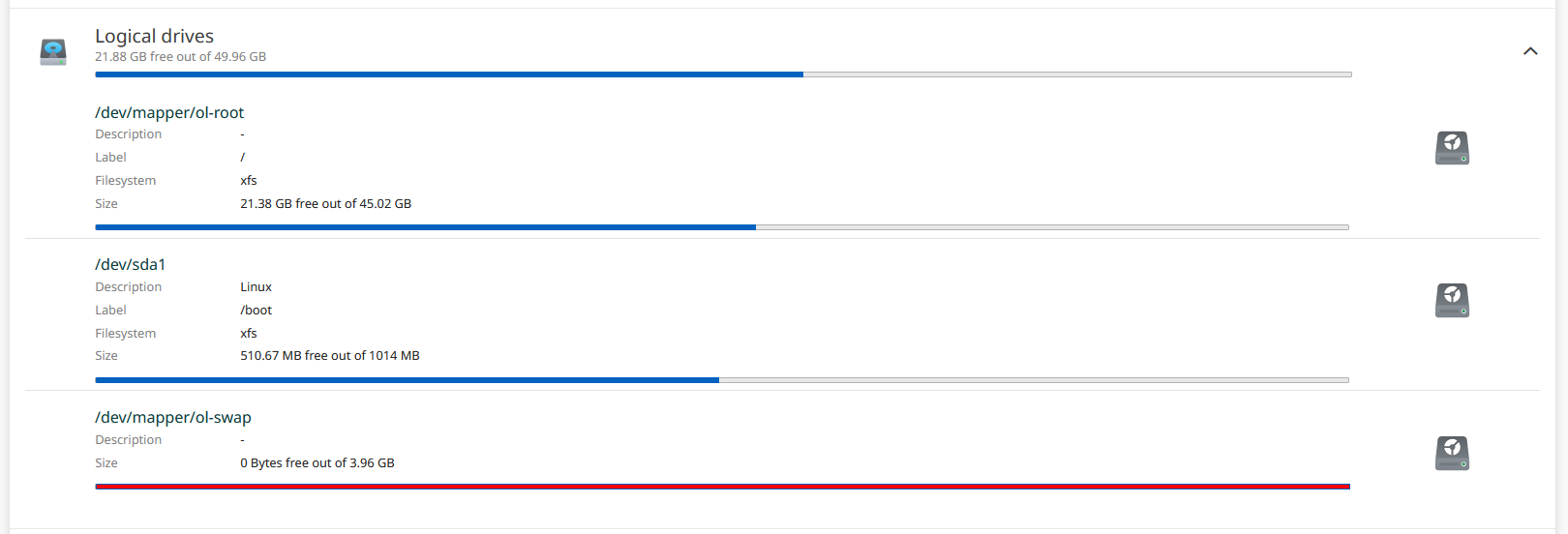The mass storage space is one of the most critical resources in your IT landscape. Having insufficient hard disk space does lead to network device failure pretty quickly. Keeping good watch over the mass storage statistics of your devices is important. Using the provided logical disk scanning technology, you can check on relevant mass storage statistics as part of device inventory, for all supported device types such as Linux and Windows.
Prevent common error scenarios of devices in your IT landscape by mass storage statistics analysis, for example...
•log file flooding,
•sub-optimal partitioning of mass storage space, or
•use of risky filesystem types with no journalling.
Mass storage information provided through the web interface can be retrieved using the REST API to aid powerful network digital content strategies.

The logical drive (also called logical disk) listing of an Unix device. This device uses a 4 GB temporary working system memory (RAM) off-loading space on a persistent mass storage device. It is a Linux device, as indicated by the Description field of the /dev/sda1 partition. The common filesystem type appears to be xfs. The total mass storage space usage is close to half of the totally available. Two of the logical disks are mounted inside of the Unix path tree, onto the paths / and /boot respectively. Linux LVM technology is used to power the presented logical volumes, hinted at by the /dev/mapper/ prefix of two logical disks.
Definition of a logical disk
A logical disk is a region of mass storage space available for direct use by end-user application data or critical system components. Logical disk storage regions should not overlap each other. Mass storage space used completely to host another mass storage space is not a logical disk. They can be real partitions of physical hardware or virtual mass storage model regions made possible by data models.
Supported operating system types
A plethora of device types is supported by logical disk scanning to make your IT landscape management as comfortable as possible.
•Microsoft Windows
•Linux
•macOS
•HP AIX
•HP UX
•Oracle Solaris
Size unit definitions
The following units are used in relation to mass storage sizes.
•KB = 1024 bytes
•MB = 1024 * 1024 bytes = 1048576 bytes
•GB = 1024 * 1024 * 1024 bytes = 1048576 bytes
•(...)
Any further unit not listed here is defined in an equivalent way. These units are otherwise known as KiB, MiB, GiB, etc.
Basic explanation of the technology
The relevant scanners used during device inventory fetch mass storage model information using WMI (Windows) or advanced remote device commands (Unix-based). The information is fully matched and deduplicated. Extra care is taken to fetch real internal device data as close to the system as possible.